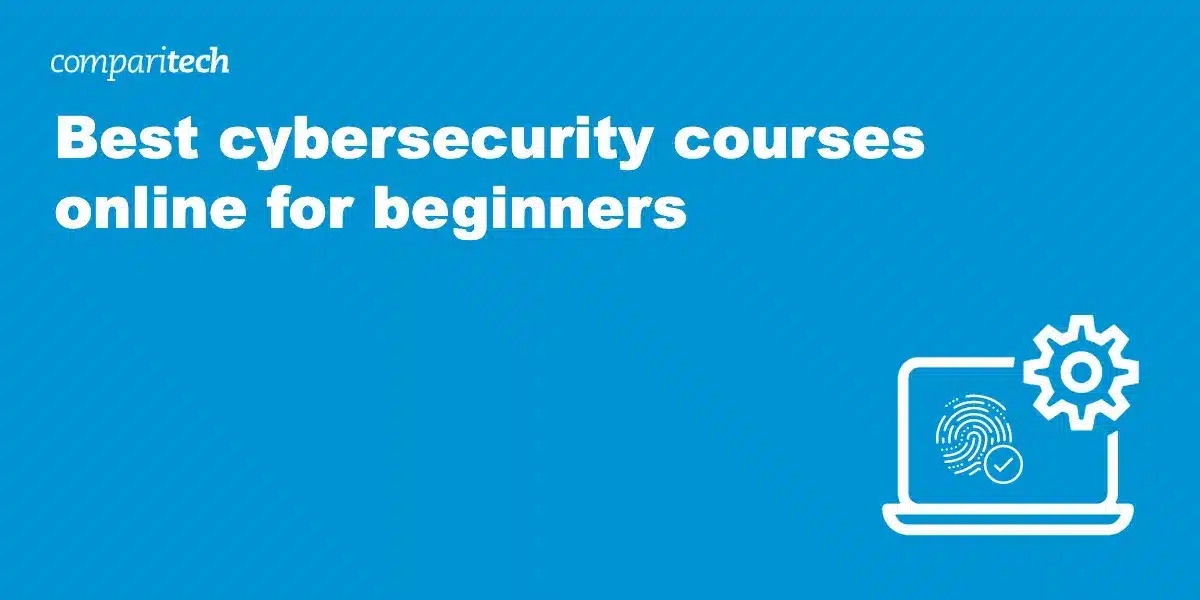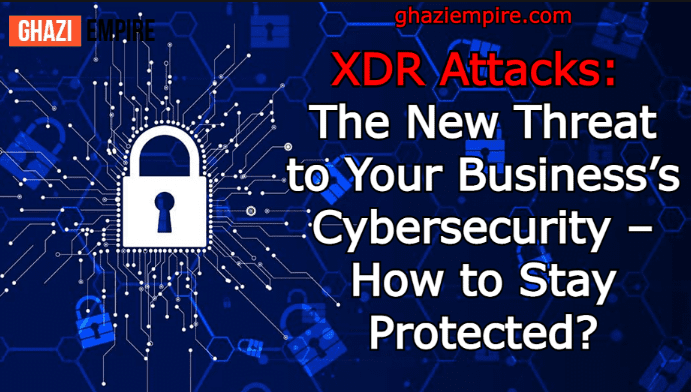7 Best Cybersecurity Courses Online for Beginners

In today’s digital age, where technology plays a critical role in our daily lives, the importance of cybersecurity cannot be overstated. With the increasing frequency and sophistication of cyber threats, it has become crucial for individuals and organizations to prioritize their online security. One way to gain the necessary knowledge and skills to protect against cyber threats is by enrolling in cybersecurity courses online. In this article, we will explore the seven best cybersecurity courses online for beginners.
Our course selections were carefully curated based on the following criteria:
- Value for money: We understand the importance of investing wisely in your education. Our chosen courses offer competitive pricing without compromising on quality. You can maximize the value of your investment by gaining valuable skills and knowledge at an affordable price point.
- Beginner-friendly: Whether you have minimal or no previous knowledge of cybersecurity, our selected courses are designed to cater to learners at all levels. You can confidently embark on your cybersecurity journey, knowing that the courses provide a solid foundation and do not assume prior expertise.
- Practical advice: We believe in the power of practical learning. The courses we have chosen go beyond theory and offer actionable advice that you can immediately apply in real-world scenarios. You will acquire hands-on skills and techniques that are directly relevant to the field of cybersecurity.
- Convenient online learning: We recognize the need for flexibility and convenience in today’s fast-paced world. All the courses we recommend are entirely online, allowing you to learn at your own pace and from the comfort of your preferred location. There is no need for travel or attending physical classes, ensuring a seamless learning experience.
- Certification upon completion: Earning a recognized certification can boost your credentials and demonstrate your proficiency in cybersecurity. The courses we have selected provide certification upon successful completion. This certification validates your newly acquired skills and can enhance your career prospects in the cybersecurity industry.
You can also view the article: Top Cybersecurity Schools: Become a Best Cyber Warrior
Best cybersecurity course online for beginners
1. StationX VIP Membership:

StationX is a renowned platform that offers a comprehensive range of cybersecurity courses. Their VIP membership provides access to over 90 cybersecurity courses, covering various aspects of online security, including ethical hacking, penetration testing, digital forensics, and more. The courses are designed by industry experts and provide practical hands-on training. The StationX VIP membership is an excellent option for individuals who want to delve deep into the world of cybersecurity.
StationX VIP Membership is a comprehensive cybersecurity course package that covers a wide range of topics. Let’s explore each component in detail:
- Hackers Exposed: This module provides insights into the world of hackers and their techniques. You will learn about different types of hackers, their motivations, and the methods they use to exploit vulnerabilities. Understanding the mindset and tactics of hackers is essential for developing effective security strategies.
- Network Security: Network security is a critical aspect of cybersecurity. This module focuses on securing networks and preventing unauthorized access. You will learn about network protocols, firewalls, intrusion detection systems, and other security measures to protect networks from cyber threats.
- Anonymous Browsing: In this module, you will explore techniques to maintain anonymity and privacy while browsing the internet. You will learn about virtual private networks (VPNs), Tor networks, and other tools that help conceal your identity and protect your online activities from prying eyes.
- EndPoint Protection: Endpoint protection refers to securing individual devices such as computers, laptops, and mobile devices. This module covers various strategies and tools for protecting endpoints from malware, unauthorized access, and other threats. You will learn about antivirus software, encryption, and secure configuration practices.
2. Coursera Introduction to Cyber Security Specialization:

Coursera is a popular online learning platform that offers a wide range of courses, and its Introduction to Cyber Security Specialization is an ideal starting point for beginners. This specialization consists of five courses that cover the fundamentals of cybersecurity, cryptography, network security, and secure coding practices. The courses are created by top instructors from leading universities and organizations, ensuring high-quality content.
The Coursera Introduction to Cyber Security Specialization is a series of courses that provide a comprehensive understanding of cybersecurity. Let’s delve into each component:
- Introduction to Cyber Attacks: This course introduces you to the different types of cyber attacks, including malware, phishing, and social engineering. You will learn about the methods used by attackers and how they exploit vulnerabilities to gain unauthorized access to systems and data.
- Cyber Attack Countermeasures: In this course, you will explore countermeasures to mitigate the impact of cyber attacks. Topics covered include secure coding practices, patch management, and network security measures. You will learn how to implement preventive measures to minimize the risk of successful attacks.
- Real-Time Cyber Threat Detection and Mitigation: This course focuses on real-time detection and response to cyber threats. You will learn about threat intelligence, monitoring tools, and incident response techniques. The course emphasizes proactive measures to identify and mitigate threats before they cause significant damage.
- Enterprise and Infrastructure Security: This course addresses cybersecurity at the enterprise level, covering topics such as risk management, access control, and secure network design. You will gain insights into securing complex IT infrastructures and understanding the unique challenges faced by organizations.
3. Cyber Aces Online:

Cyber Aces Online is a free, self-paced cybersecurity training program that aims to equip beginners with essential cybersecurity skills. The program covers topics such as operating systems, networking, system administration, and cybersecurity principles. Cyber Aces Online provides interactive learning modules and hands-on exercises to enhance practical knowledge. This course is an excellent choice for individuals who prefer a self-paced learning environment.
Cyber Aces Online offers a self-paced cybersecurity training program. Let’s explore the key areas covered in this course:
- Operating Systems: This module provides an understanding of different operating systems and their vulnerabilities. You will learn about securing operating systems, managing user permissions, and implementing security patches and updates.
- Networking: Networking is a fundamental aspect of cybersecurity. This module covers network protocols, IP addressing, network segmentation, and securing network communications. You will gain knowledge of network security best practices and common attack vectors.
- System Administration: System administration plays a crucial role in maintaining secure systems. This module focuses on system administration tasks related to cybersecurity, including user management, access control, system monitoring, and incident response. You will learn how to effectively manage and secure systems and networks.
4. Heimdal Cyber Security for Beginners:

Heimdal Security offers a beginner-level cybersecurity course that focuses on providing a solid foundation in online security. The course covers topics such as malware, phishing, secure browsing, and password management. Heimdal Security’s course is self-paced and includes video lessons, quizzes, and practical exercises. It is an excellent option for beginners who want to understand the basics of cybersecurity in a clear and concise manner.
The Heimdal Cyber Security for Beginners course is delivered through lessons sent to your inbox every two days over a five-week period. Let’s explore the topics covered in this course:
- Introduction to Cybersecurity: This module provides an overview of cybersecurity, its importance, and the evolving threat landscape. You will gain a foundational understanding of the concepts and principles of cybersecurity.
- Various Cybersecurity Threats: In this module, you will learn about different types of cyber threats, including malware, phishing, and social engineering. The course focuses on identifying and understanding the techniques used by attackers.
- Basic Security Measures: This module covers basic security measures individuals can take to protect themselves online. You will learn about strong passwords, secure web browsing practices, and the importance of software updates. The course emphasizes practical steps to enhance personal cybersecurity.
- Secure Online Communication: This module focuses on secure communication methods, including email encryption, virtual private networks (VPNs), and secure messaging apps. You will gain knowledge of tools and techniques to protect your online communications from eavesdropping and interception.
- Data Protection and Privacy: This module explores data protection and privacy practices. Topics covered include data backup, encryption, and best practices for safeguarding personal and sensitive information. The course emphasizes the importance of data privacy in the digital age.
5. Cybrary Introduction to IT and Cybersecurity:

Cybrary is a popular online platform that offers a wide range of IT and cybersecurity courses. Their Introduction to IT and Cybersecurity course is specifically designed for beginners and covers essential concepts such as networking, system administration, and cybersecurity fundamentals. The course includes video lessons, hands-on labs, and assessments to reinforce learning. Cybrary’s course is a comprehensive introduction to the world of cybersecurity.
Cybrary’s Introduction to IT and Cybersecurity course is a comprehensive program that covers various crucial areas. Here’s a breakdown of the key topics covered:
- Network Engineering: This module focuses on the fundamentals of network engineering. You will learn about network architectures, protocols, and components. Additionally, you’ll gain knowledge of network security measures and best practices for securing network infrastructure.
- System Administration: System administration is a critical aspect of IT and cybersecurity. In this module, you’ll learn about managing and securing computer systems. Topics covered include user management, access control, system configuration, and implementing security measures to protect systems from potential threats.
- Forensics: Forensics plays a vital role in investigating and analyzing cyber incidents. This module provides an introduction to digital forensics, covering topics such as evidence gathering, incident response, and forensic analysis techniques. You’ll learn how to identify and collect digital evidence to support investigations.
- Penetration Testing: Penetration testing, also known as ethical hacking, is an essential skill for cybersecurity professionals. This module introduces the principles and methodologies of penetration testing. You’ll learn how to identify vulnerabilities in systems and networks, exploit them ethically, and provide recommendations for improving security.
6. Harvard Cybersecurity:

Managing Risk in the Information Age: For those looking for a more advanced cybersecurity course, Harvard University offers a program called “Cybersecurity: Managing Risk in the Information Age.” This professional development program explores the strategic and managerial aspects of cybersecurity. The course covers topics such as risk management, cybersecurity policies, incident response, and emerging threats. Harvard’s program is ideal for professionals or individuals seeking a deeper understanding of cybersecurity’s strategic implications.
Harvard’s Cybersecurity: Managing Risk in the Information Age is an advanced course that delves into the complexities of cybersecurity. Here are the key areas covered in this course:
- Attack Types, Risks, and Mitigation Strategies: This module provides an in-depth understanding of various cyber attacks types, such as malware, social engineering, and advanced persistent threats (APTs). You’ll learn about the associated risks and explore effective strategies to mitigate these risks.
- Compliance and Legal Issues: Compliance with regulations and understanding legal aspects are crucial in cybersecurity. This module focuses on compliance frameworks, industry regulations, and legal considerations. You’ll gain insights into the legal implications of cybersecurity breaches and the importance of compliance for organizations.
- Risk Management: Effective risk management is essential for maintaining a strong cybersecurity posture. This module covers risk assessment methodologies, risk mitigation strategies, and risk management frameworks. You’ll learn how to identify and assess risks, develop risk management plans, and implement proactive measures to mitigate threats.
- Information Security Governance: Information security governance involves establishing and maintaining a framework to guide an organization’s cybersecurity efforts. This module explores the principles of information security governance, including organizational structures, policies, and procedures. You’ll gain insights into establishing security frameworks and aligning cybersecurity with business objectives.
7. Udemy Cybersecurity Certification Training:
Udemy is a popular online learning platform that offers a wide range of cybersecurity courses. Their Cybersecurity Certification Training provides comprehensive coverage of key cybersecurity concepts and skills. The course includes topics such as network security, ethical hacking, cryptography, and security operations. Udemy’s course is designed to prepare students for industry-recognized cybersecurity certifications, making it an excellent choice for individuals aiming to enhance their career prospects.
Why Take a Cybersecurity Course?
Taking a cybersecurity course offers numerous benefits, especially in today’s digital landscape. Here are a few reasons why you should consider enrolling in a cybersecurity course:
- Increasing demand: The demand for cybersecurity professionals is growing rapidly as organizations prioritize their online security. By acquiring cybersecurity skills, you can tap into a wide range of job opportunities in various industries.
- Protect personal and professional data: With cyber threats becoming more sophisticated, it is essential to understand how to protect your personal and professional data. A cybersecurity course equips you with the knowledge and skills to safeguard your digital assets.
- Career advancement: Cybersecurity professionals are in high demand, and having the necessary skills can lead to career advancement opportunities. By enrolling in a cybersecurity course, you can enhance your resume and increase your chances of securing higher-paying job roles.
- Stay ahead of threats: Cybersecurity is an ever-evolving field, with new threats emerging regularly. By taking a cybersecurity course, you can stay updated with the latest trends, techniques, and technologies in the industry, ensuring you can effectively combat emerging threats.
Tips for Pursuing a Cybersecurity Career:
- Gain foundational knowledge: Start by enrolling in beginner-level cybersecurity courses that cover the fundamentals. This will provide you with a solid foundation to build upon as you progress in your cybersecurity career.
- Develop practical skills: Cybersecurity is a hands-on field, so it’s crucial to gain practical experience. Look for courses that offer hands-on labs, real-world scenarios, and practical exercises to apply your knowledge.
- Obtain certifications: Industry-recognized certifications such as CompTIA Security+, Certified Ethical Hacker (CEH), and Certified Information Systems Security Professional (CISSP) can boost your credibility and increase your chances of landing lucrative job opportunities.
- Network and collaborate: Join cybersecurity communities, attend industry events, and engage with professionals in the field. Networking can help you gain insights, mentorship, and potential job opportunities.
- Stay updated: Cybersecurity is a rapidly evolving field, so it’s important to stay updated with the latest trends and developments. Follow industry blogs, participate in webinars, and join relevant forums to stay ahead of the curve.
Cybersecurity Courses Online FAQs:
Q: What are the different topics covered in cybersecurity courses?
A: Cybersecurity courses cover a wide range of topics, including network security, cryptography, ethical hacking, incident response, secure coding, risk management, and more. The specific topics covered may vary depending on the course and its level of complexity.
Q: Is a cybersecurity career well-paid?
A: Yes, cybersecurity professionals are in high demand, and the field offers competitive salaries. The pay scale can vary based on factors such as experience, certifications, and job roles. Generally, cybersecurity careers are well-paid and offer excellent growth opportunities.
Q: How long will it take to learn basic cybersecurity skills?
A: The duration to learn basic cybersecurity skills can vary depending on the individual’s prior knowledge, learning pace, and the intensity of the course. However, on average, it may take a few months of dedicated learning and practice to acquire a solid foundation in cybersecurity.
Conclusion:
In today’s digital world, cybersecurity has become a necessity rather than a choice. By enrolling in cybersecurity courses online, beginners can gain the knowledge and skills needed to protect against cyber threats. The seven courses mentioned in this article – StationX VIP Membership, Coursera Introduction to Cyber Security Specialization, Cyber Aces Online, Heimdal Cyber Security for Beginners, Cybrary Introduction to IT and Cybersecurity, Harvard Cybersecurity: Managing Risk in the Information Age, and Udemy Cybersecurity Certification Training – offer excellent options for individuals at various skill levels. Whether you’re a beginner looking for a basic introduction or a professional seeking to advance your cybersecurity career, these courses can provide the necessary education and training to help you succeed in the field of cybersecurity.



